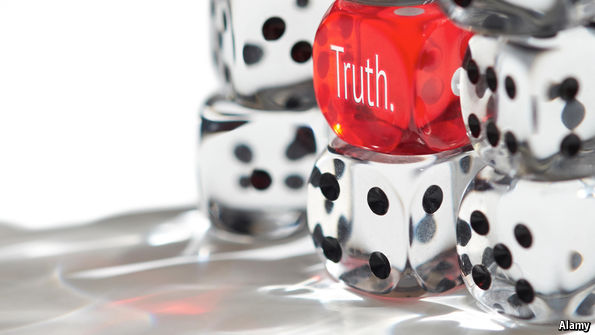People may be more honest than psychologists thought

“IN THE state of nature, profit is the measure of right,” wrote Thomas Hobbes, a philosopher with a dim view of human nature. Hobbes’s fellow-thinkers have spent centuries pondering whether humans tend to be self-serving or are more inclined to straight-dealing. (Obviously, people exhibit both kinds of behaviour. The question is which comes most easily.)
So far, most experiments have tended to favour the first idea—that humans are dishonest by default when it serves their self-interest. In one study led by Shaul Shalvi at the University of Amsterdam, for example, participants were told to roll a die secretly three times and write down the results of the first roll. They would then receive 10 times that number in Israeli New Shekels. The researchers found that people who were asked to report their die roll within 20 seconds tended to report higher numbers than those who were given no time limit (though both groups reported higher numbers, on average, than would be expected if they were being truthful).
Now, though, the waters have been muddied by a new study…Continue reading
Source: Economist




